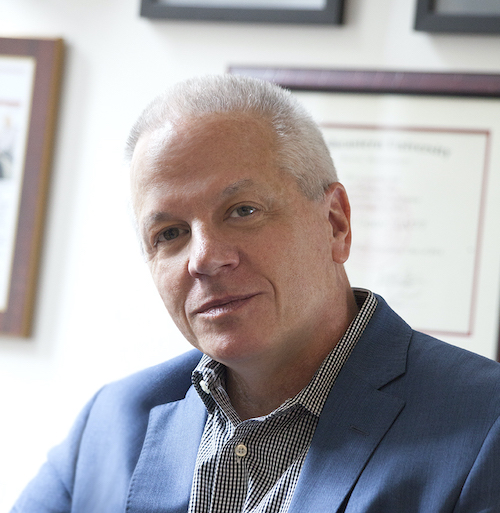No Joke: A Funny Thing Happened on the Way to Resiliency
By Steve Cody
April 2021
As the United States recently passed a somber and staggering milestone — 500,000 deaths from COVID-19 — we’re realizing that the horrific effects of the virus extend far beyond the lost lives. Our nation’s economy is shattered and many American’s are struggling to make ends meet.
According to the Labor Department, 100,000 Americans have filed for unemployment benefits for 46 consecutive weeks (as of the week ending Feb. 19). Making matters worse are the negative mental health issues stemming from the extended quarantine to combat the spread. A recent study published from the World Economic Forum found that one-in-three adults are depressed or anxious due to COVID-19.
It’s grim to be sure. But there is a way to alleviate some of these ills. It’s called humor and it’s fundamental to our ability to remain resilient despite everything life has thrown our way.
Advocating for humor
I’ve advocated for humor in the workplace for years. In fact, every employee at my agency Peppercomm has undergone stand-up and improvisational comedy training as part of their onboarding and annual development process.
We believe in the benefits of comedy training: Overcoming fear, gaining self-confidence, improved teamwork and collaboration, and greater ability to focus, react, and hone active listening skills are just a few highlights.
We’ve won workplace awards as a direct result of our comedy-fueled culture and tied it in to our annual charitable fundraising. We’ve also trained clients ranging from oncologists and bankers to rocket scientists and lawyers. And they were all funny — even the lawyers!
But don’t take my word for it.
In a recently published book, “Humor, Seriously: Why Humor Is a Secret Weapon in Business and Life,” authors Jennifer Aaker and Naomi Bagdonas ask if we can combine the behavioral science of humor with the principles of comedy and apply them in a beneficial way to business.
The short answer is yes, and the authors have conducted extensive research to prove it! They show that when we refuse to take ourselves so seriously, we relieve stress and anxiety. We are able to create more meaningful connections with colleagues and open our minds to more innovative solutions.
In fact, a key take-away mirrors what we’ve been saying at Peppercomm for decades — “We take our clients’ business and our business very seriously, but we do NOT take ourselves seriously at all.”
By the way, did I mention Aaker and Bagdonas teach a course at Stanford’s Graduate School of Business about how to harness humor and levity as a competitive advantage in business? The MBA students get the same amount of academic credit for the comedy course as they would for “Managerial Accounting” or “Financial Trading Strategies.”
Their rationale for doing so is simple. “Even for those who intuitively understand humor’s power, few know how to wield it with intention. As a result, humor is vastly underleveraged in most workplaces today, impacting our performance, relationships and health,” they wrote.
As a result, the American business landscape is littered with organizations whose employees are missing out on the sheer joy of laughing out loud.
I’ve seen this reality echoed in research my firm conducted with the Institute for Public Relations throughout 2020. In the second of three reports, two senior communications executives told us that improving employee morale, engagement and productivity was their No. 1 concern.
Most were uncertain, though, how to improve those critical attributes.
Turning to Zoom
So, what happens when you’ve been providing in-person, day-long comedy experiences when COVID shuts down everything? How does one provide comedy training in a virtual world?
As is usually the case with Peppercomm, it took us a little time to reframe, reset and respond with an updated version that is now only 75-minutes long, uses various best practices for enlivening virtual meetings and stays true to our original model.
We begin the virtual training sessions by quickly explaining the art of stand-up and improvisational comedy, the four different types of comedy, appropriateness, (e.g., where and when to use comedy in our politically sensitive business world) and, most importantly, how employees can use humor to put smiles back on their peers’ faces.
For this new, made-for-Zoom version, we partner with leadership speaker and comedian David Horning to deliver what we refer to as “resilience training” sessions. We’ve focused on resilience because it encompasses everything our clients and, indeed, the entire business world needs to embrace. And because, sadly, the words comedy and laughter scare far too many corporate decisionmakers in ways that “resilience” never will.
Imagine a service offering that can help your employees relieve stress and anxiety, feel stronger, create closer connections with colleagues (Read: trust) and help them become more productive at work. That tool is here: comedy, laughter, humor, resilience training. Call it what you will. But its time has come.
Laughter is not only an antidote to what ails you and your organization; it can also become a key competitive advantage. After all, people hire other people whose company they enjoy.
And making a prospective client or employer smile will exponentially increase your chances of success. Just think: While you’re building resilience, you’ll be building back business, too.
Playfulness and Joy
Resilience is one of the biggest safeguards against developing a mental illness, meaning that the resilient individual has the psychological tool set to deal with whatever life throws at them in a healthy way. It is imperative that we do our best to teach resilience wherever and whenever we can.
Thankfully, resilience is a skill that can be acquired. As we’ve found at PsycApps, a skill learned in an environment of joy, fun and even laughter will always be more readily remembered and called upon when needed.
Comedy has always been a driver of social change. It has the power to fight stigma and shine a light on topics as sensitive as mental health, even as it brings people together in laughter. I find joy and playfulness are often missing elements in mental health.
At PsycApps, we designed an evidence-based game that boosts resilience, relationship skills and personal growth while lowering levels of depression and anxiety. Using gaming to instill mental health prevention and early intervention is another way of harnessing playfulness and joy as a carrier of greater things.
Silja Latvin is a psychologist and CEO and founder of PsycApps, a Peppercomm client and strategic partner.



